How to clean a Sage coffee machine - 7 easy steps to keep the barista-worthy coffee flowing
Keep your Sage coffee machine in tip-top condition for high-quality coffee every time
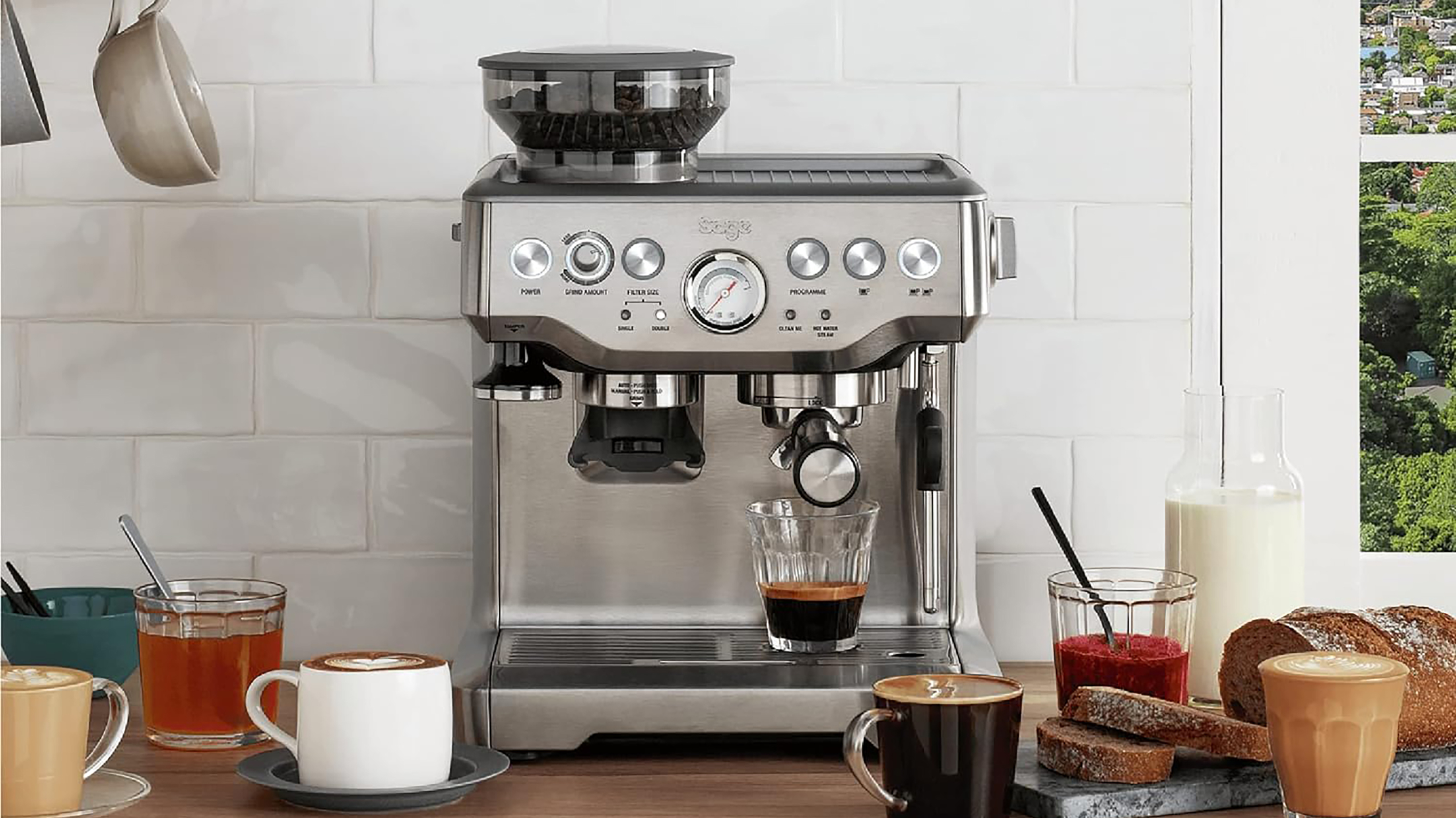

Knowing how to clean a Sage coffee machine is essential if you've taken the plunge to invest in this barista-worthy appliance.
Cleaning a coffee machine is essential if you want to increase the longevity of the espresso machine and maintain the taste you love so much. It’s important to keep all of the moving parts free from dry coffee grounds, calcified milk, and hard water deposits.
At Ideal Home, we’ve tried and tested more coffee machines than you could shake a stick at, and we understand why coffee lovers are drawn to the Sage brand. Innovators in the bean-to-cup world, this brand has an espresso machine to suit newbies and coffee connoisseurs alike. Plus, the Sage Barista Express Impress has taken the top spot as the ‘best overall’ coffee machine in our lists of the best coffee machines and the best bean-to-cup coffee machines.
However, just as knowing how to clean a Nespresso machine is specific to Nespresso users, knowing how to clean a Sage coffee machine is also tailored for Sage coffee machine owners. That's why we’ve got everything you need to know about cleaning and maintaining your home coffee machine below.
How to clean a Sage coffee machine
‘One major difference between a home user and a professional cafe is cleaning,’ explains Ryan McLachlan, Coffee Specialist at Sage. ‘When you’ve invested money in your home coffee machine to produce great-tasting speciality coffee, the last thing you want is for it to become faulty because you aren’t cleaning it properly.’
So, this is how you can clean a Sage coffee machine in just seven easy steps.
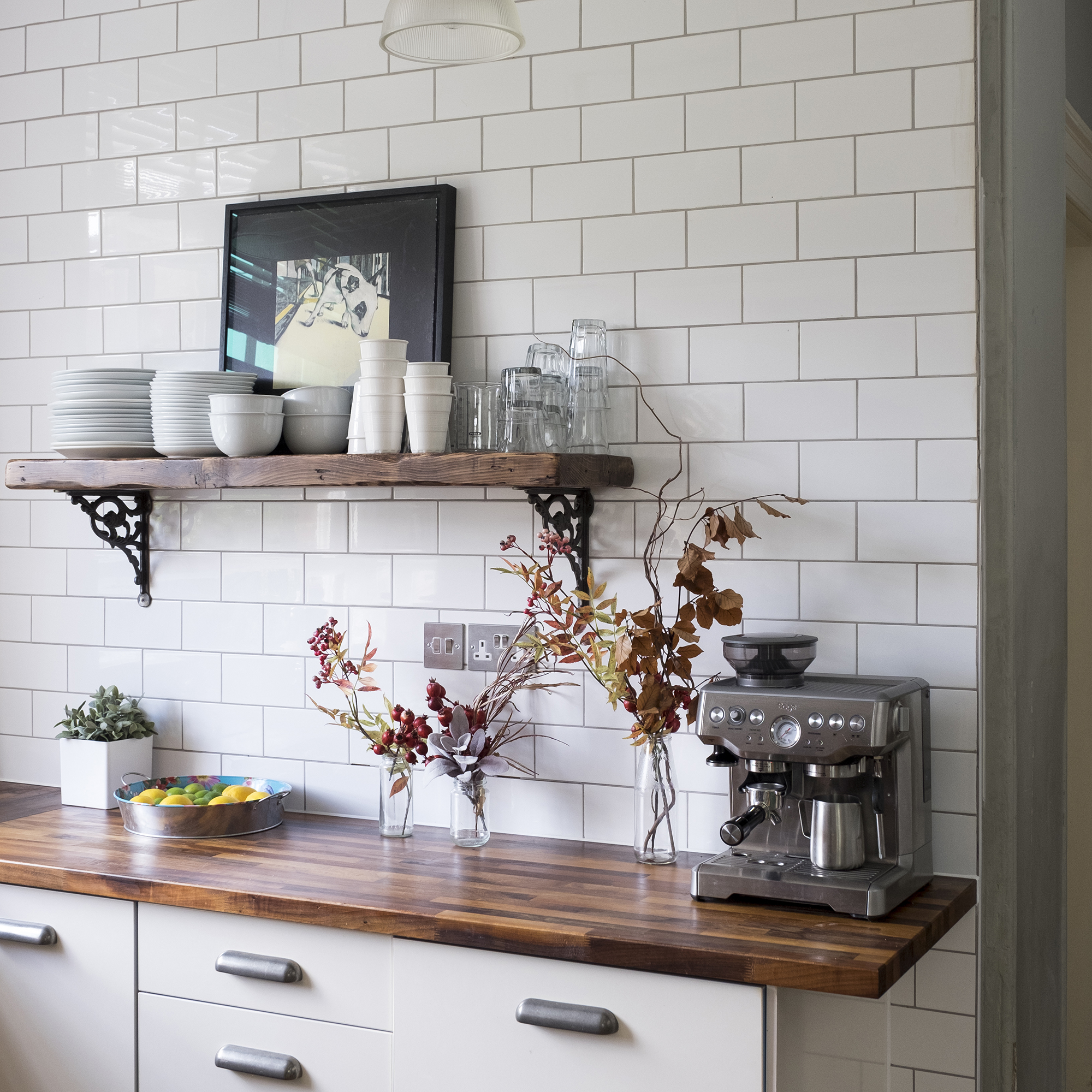
What you’ll need
- Descaler - like this Sage the Descaler from Amazon
- Microfibre cloths - like this Sorbo Pack of 4 Microfibre Cloths from Dunelm
- White vinegar - like this Hexeal White Vinegar from Amazon
- Washing up liquid
- Water
Step-by-step
1. Descale the machine
Descaling a coffee machine is just as important as descaling a kettle. The build-up of hard water deposits can negatively impact the efficiency of your machine, but, luckily, your Sage coffee machine should let you know when you need to descale it.
Our E-commerce Editor and unofficial Chief Coffee Machine Tester, Molly Cleary, is a proud owner of the Sage Barista Express Impress bean-to-cup machine and says, ‘My Sage flashes to let me know when to descale it, and upon purchase, I received two tiny limescale pods to pop into the portafilter to rinse the machine.’
According to the Sage website, you should descale your kettle every three months - but you may need to descale your Sage coffee machine earlier if you use it more than the average person.
And while the process of descaling a Sage coffee machine is generally the same across the board, it’s a good idea to follow the specific instructions in your manual for the best course of action for your specific machine.
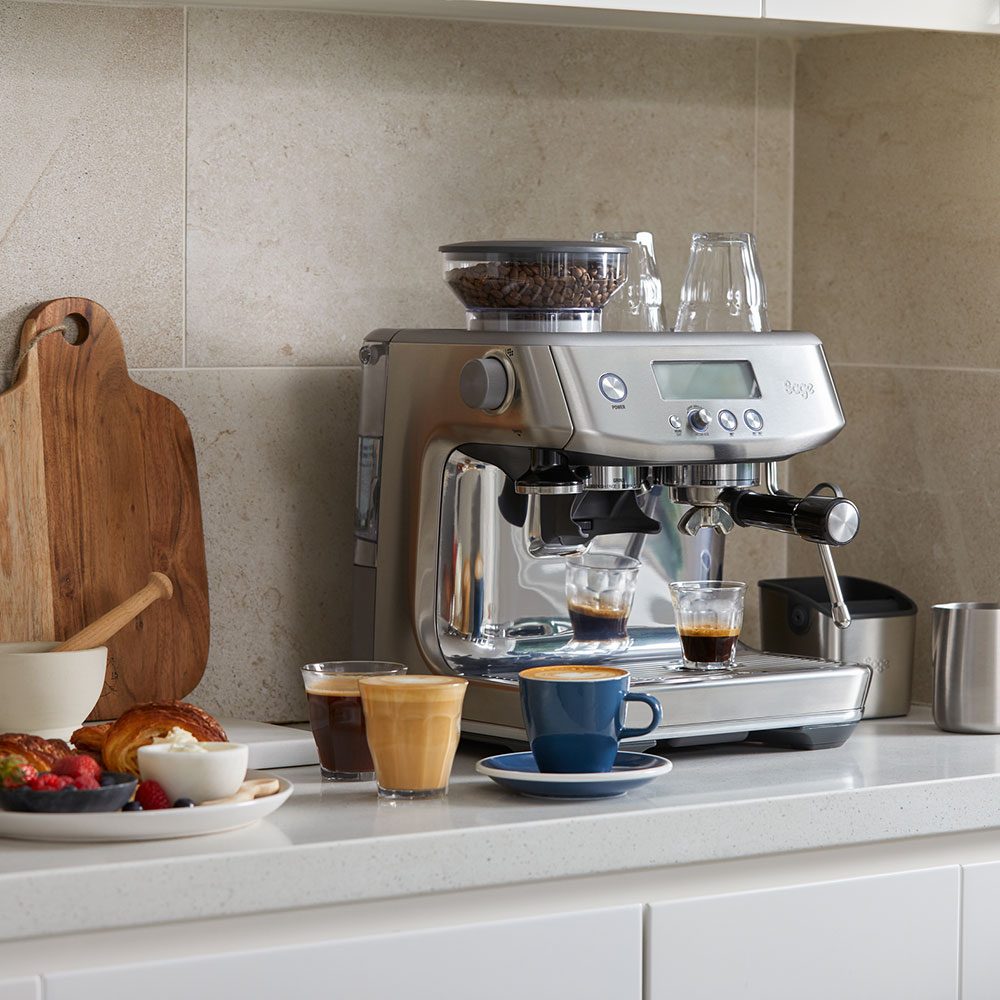
2. Clean the water tank
While Sage coffee machines come with water filters to eliminate the presence of hard water and limescale in the machine itself, that doesn’t stop this hard water from affecting the water tank.
That’s why it’s incredibly important to clean the water tank on a regular basis, and Sage suggests cleaning the water tank every two to three weeks.
Ava Wilson, Chief Editor at Unclutterer, says, ‘Remove and wash the tank with warm soapy water. Rinse thoroughly to ensure no soap residue remains.’
However, if you have particularly hard water and haven’t cleaned your water tank in a while, you might find that this isn’t enough to remove the stubborn hard water stains. If this is the case, fill the tank with a 1:2 mixture of white vinegar and water and leave it to soak for an hour.
When that hour is up, empty the tank, wipe it down with a clean microfibre cloth, and then rinse a few times to remove the vinegar smell.
3. Clean the drip tray
Sage coffee machines are generally considered top-of-the-range, but there’s a reason for that. These machines come with all kinds of gadgets and gizmos that make pulling a coffee a breeze, and one of these gadgets is a drip tray warning.
Molly says, ‘One of my favourite things about my Sage machine is that it tells you when the drip tray needs a once-over. When the water in the tray reaches a certain point, it pushes up a warning that says, ‘Drip Tray Full.’
‘I never usually let it get to this point as I make a point of emptying and cleaning the drip tray with soapy water at least once a week, but I love it as a feature.’
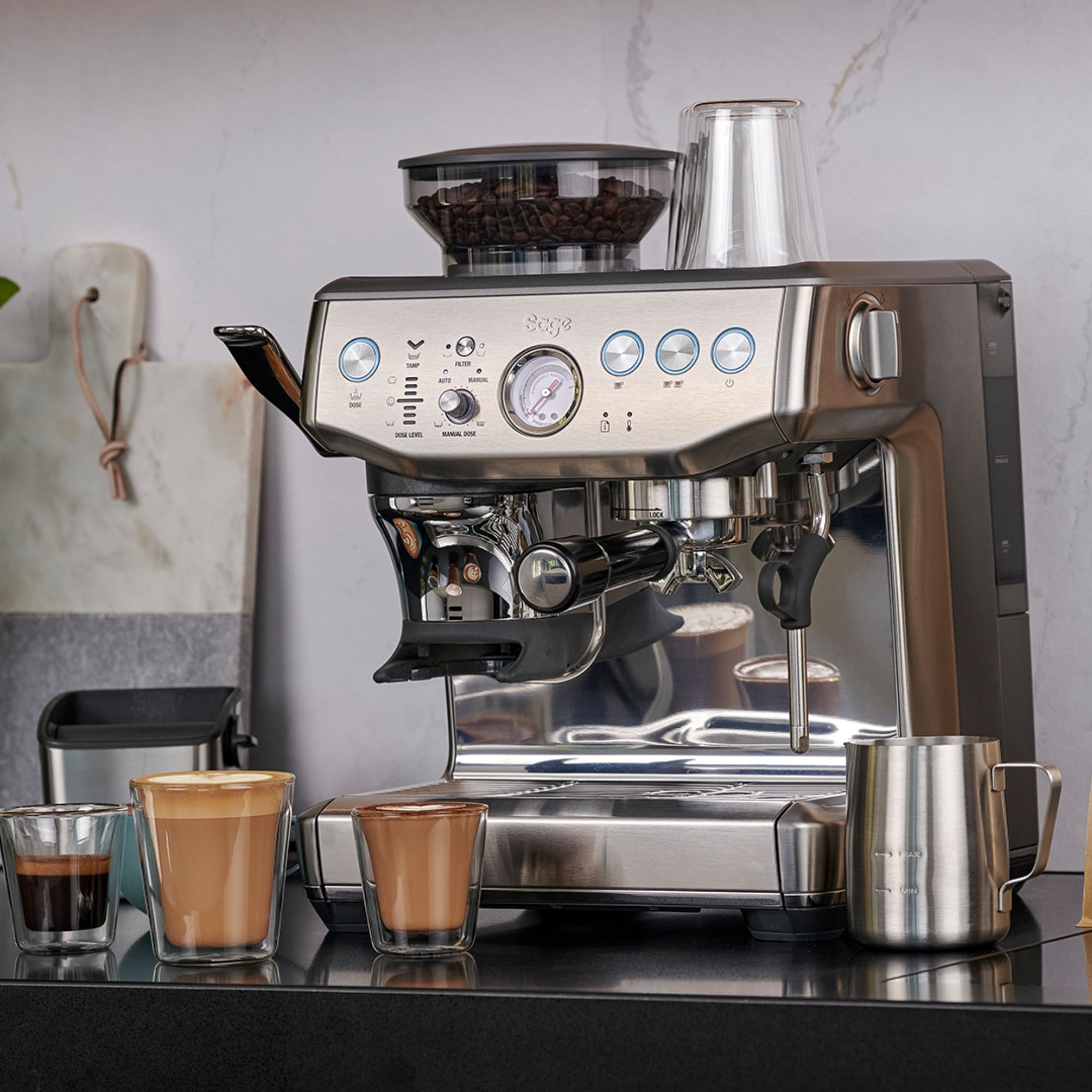
And Molly has got it spot-on. To clean the drip tray when cleaning a Sage coffee machine, it’s best to empty it out, give it a quick rinse, and then wash it in a bowl of warm, soapy water.
You can then dry the tray using a clean microfibre cloth or paper towel before popping it back onto your machine.
4. Clean the portafilter and filter basket
No bean-to-cup coffee machine would be complete without a portafilter and filter basket, but it’s easy to brush over this feature when cleaning your coffee machine. However, cleaning a Sage portafilter and filter basket can make a huge difference to the extraction rate and the taste of your coffee.
The best way to clean these two features is to separate them and then clean them both in warm, soapy water. To ensure you remove any loose granules or debris, use a soft-bristled scouring brush to get into every single nook and cranny.
Alternatively, you could soak the portafilter and filter basket in a bowl of hot water and drop in one of these Sage Espresso Pack of 8 Cleaning Tablets from Argos.
Then, rinse and dry fully before reassembling your coffee machine. You can then use your Sage coffee immediately, but Ava suggests maintaining a cleaning schedule after making your coffee in the morning.
‘After each use, remove the coffee grounds and rinse the portafilter and basket under warm water. Use a brush to remove any remaining coffee grounds.’
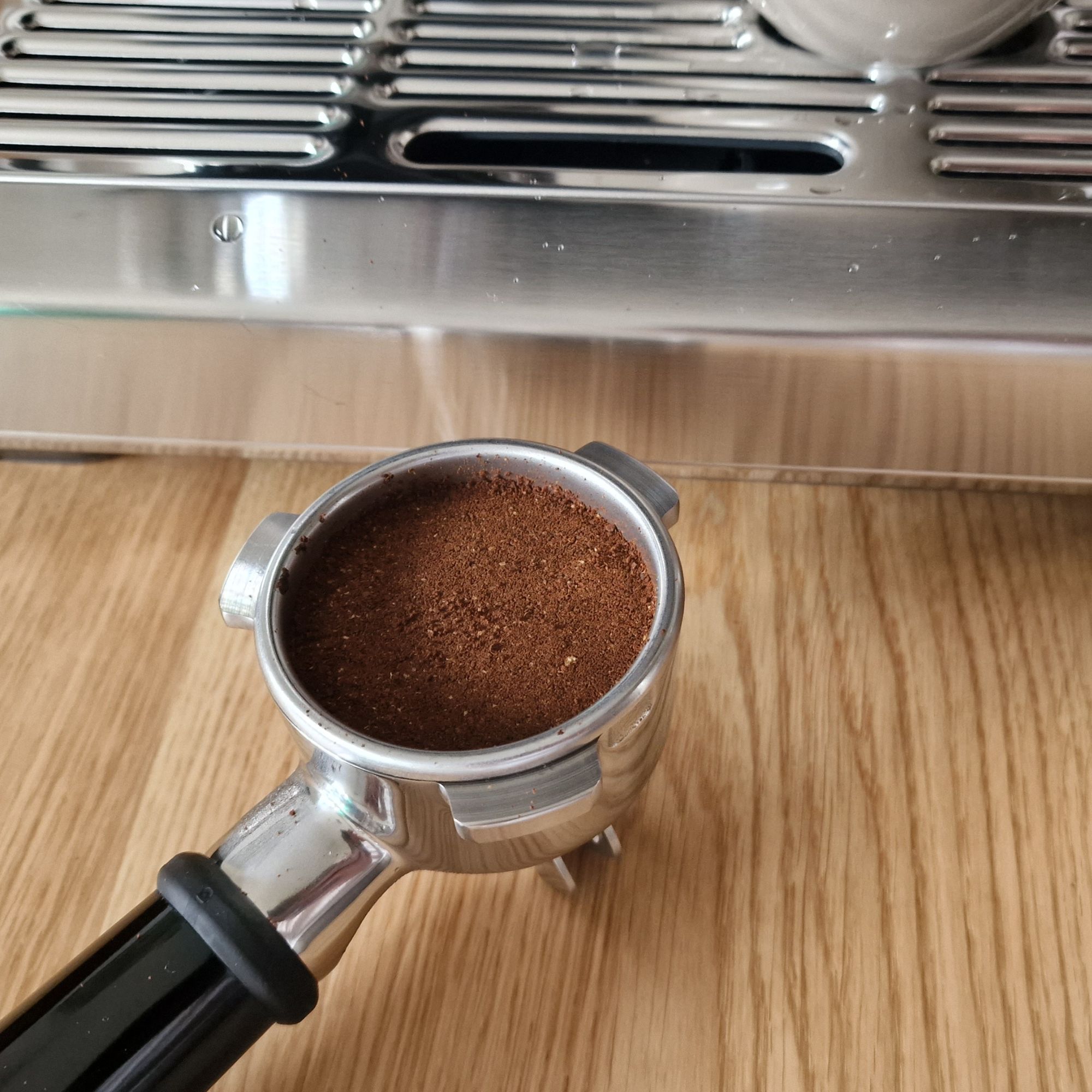
5. Clean the steam wand
Unless you exclusively drink espressos, you should clean the steam wand on your Sage coffee machine on a regular basis. In fact, you should ‘purge’ your steam wand before and after every use. To do this, simply turn your steam wand on for 1-2 seconds, and this will force out any excess condensation or milk.
However, the Sage website also suggests giving your steam wand a deeper clean using the ‘soak and poke’ method every week in addition to this daily purging.
This ‘soak and poke’ method involves soaking the wand in a glass or mug of cleaning solution to break down any calcified milk and then poking the holes in the steam wand with a toothpick to prevent blockages that could ultimately affect the steaming efficiency.
When you’ve done that, clean the wand again with some warm, soapy water, purge it once more, and then dry it with a clean cloth.
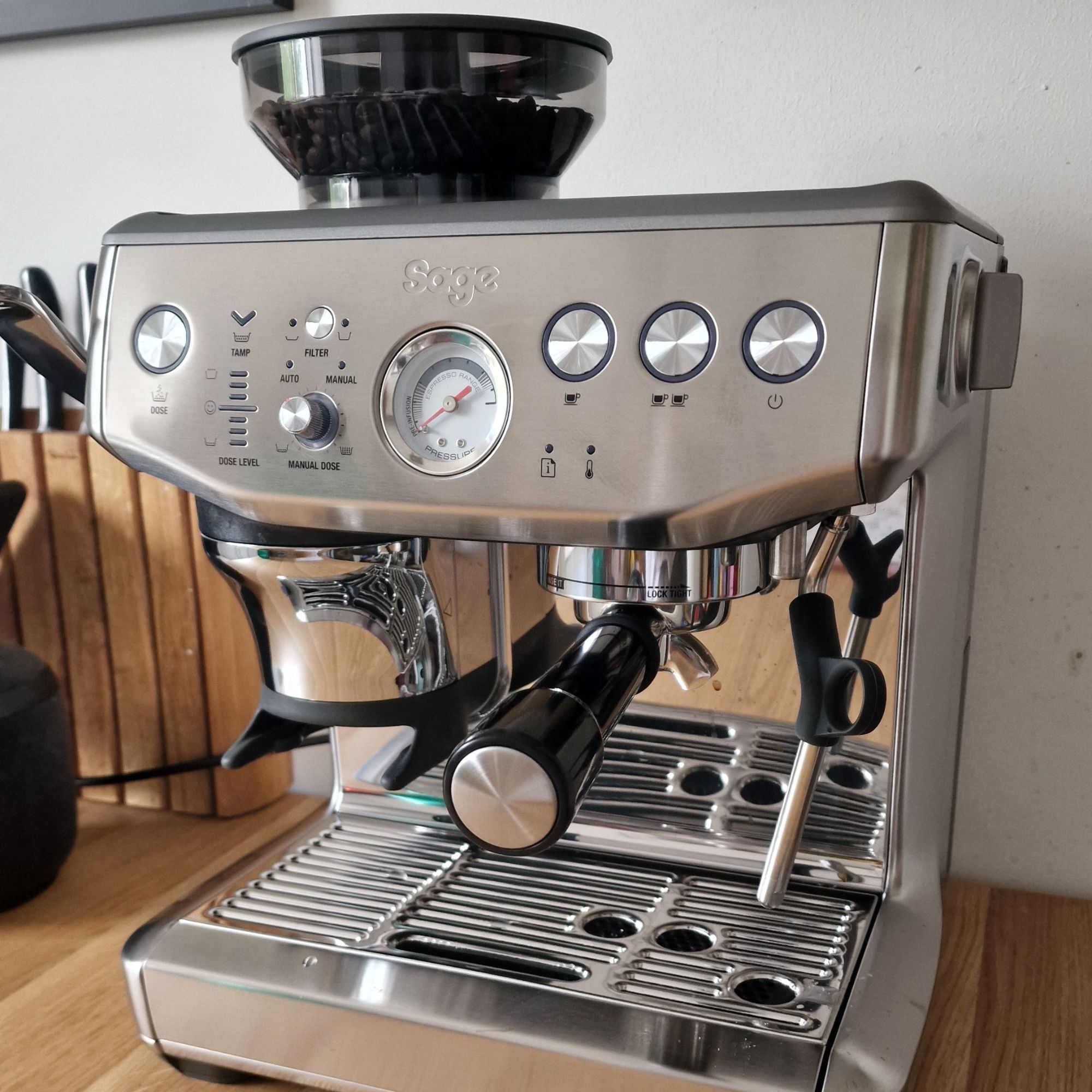
6. Change the filter
When you buy a Sage coffee machine, you’ll find that it comes with one of two water filters as standard. It’ll either have a ClaroSwiss filter (which is compatible with all Sage espresso machines) or a Charcoal Water Filter (which is only compatible with a few machines).
While it’s not necessary to use these filters in order to use the machine, they are recommended to keep the machine in total working order and to prevent limescale damage. And as they only have a three-month lifespan, you should add changing the filter to your coffee machine cleaning schedule.
This is very easy to do, and all you have to do is remove and drain the water tank, remove the old water filter, soak the new filter as per the instructions, and then click it into place before filling the tank with water once more.
7. Clean the exterior
When it comes to cleaning a Sage coffee machine, some of the steps on this list can be done every few months or so. But if you want your coffee machine to make a statement on your kitchen countertops, it’s a good idea to clean the exterior every few days.
In fact, Molly has confessed that this is something you can’t really avoid with the stainless steel exterior. ‘In terms of general upkeep, as the machine is stainless steel, I do find myself going over it with a damp microfiber cloth quite often, but that's a small price to pay to keep it looking fresh!'
So, regularly wiping down the exterior to remove any grubby finger marks is a must, and while you’re there, it’s a good idea to brush the areas near to the grinder, too.
Molly says, ‘Also included is a cleaning kit with a tiny brush, and I've found this is best used to get in areas around the grinder that you definitely do not want to put your fingers near.’
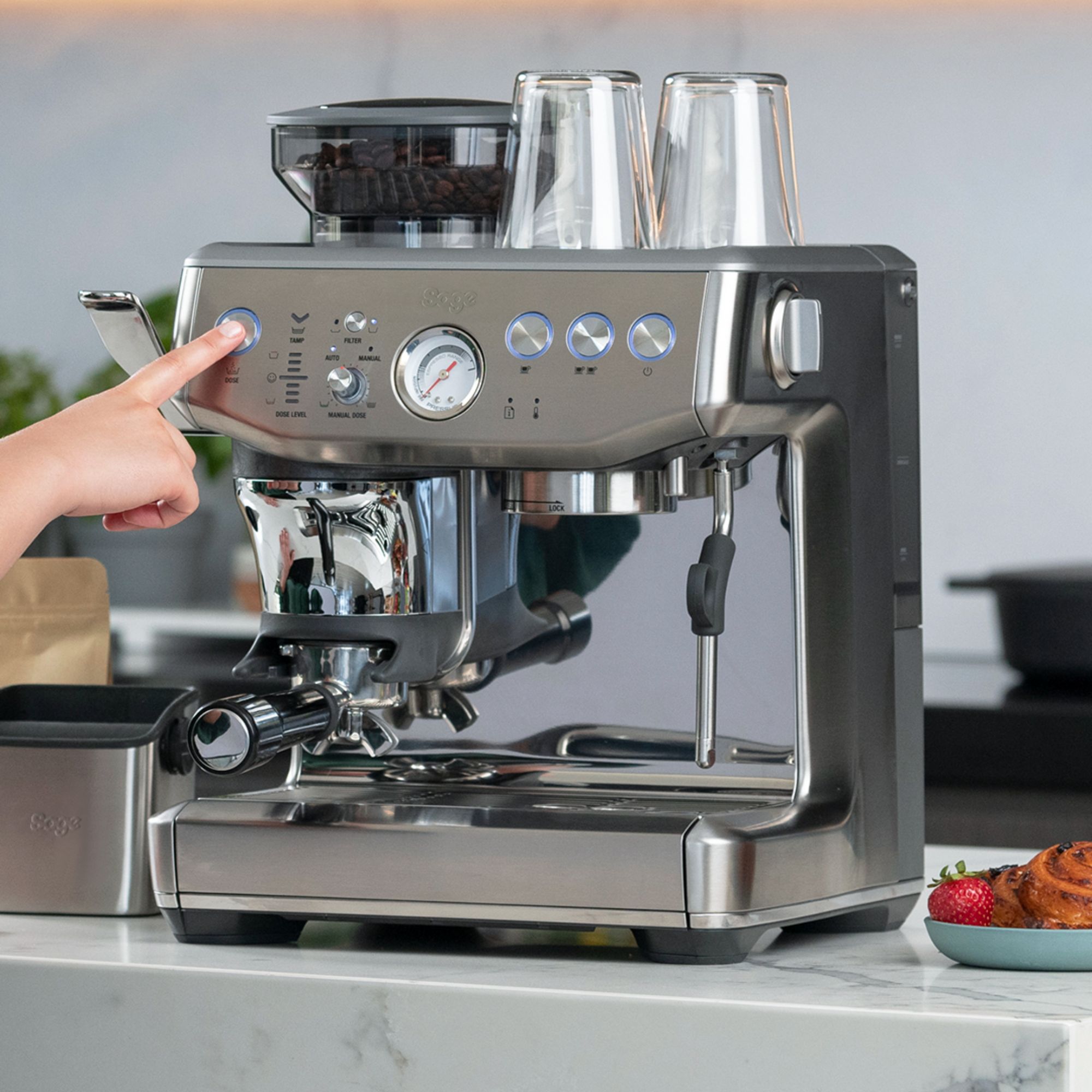
FAQs
How do you clean the sage coffee machine?
To successfully clean a Sage coffee machine, you must clean the individual components, including the water tank, portafilter and filter basket, steam wand, and drip tray. Most of these components can be cleaned using warm, soapy water, but you could also use any products that come with your coffee machine.
Can you use any descaler in Sage coffee machine?
Although you can use any descaler to descale a Sage coffee machine, this is done at your own risk. Sage only recommends using the Sage descaling solution and using another product may invalidate your warranty if you find that this alternative process damages your coffee machine in any way.
However, many people have found success either using vinegar or citric acid to descale their Sage coffee machine.
Remember, regular maintenance is essential to keep your Sage coffee machine in full working order.
Get the Ideal Home Newsletter
Sign up to our newsletter for style and decor inspiration, house makeovers, project advice and more.

Lauren Bradbury has been the Content Editor for the House Manual section since January 2025 but worked with the team as a freelancer for a year and a half before that. She graduated with a Bachelor’s degree in English and Creative Writing from the University of Chichester in 2016. Then, she dipped her toe into the world of content writing, primarily focusing on home content. After years of agency work, she decided to take the plunge and become a full-time freelancer for online publications, including Real Homes and Ideal Home, before taking on this permanent role. Now, she spends her days searching for the best decluttering and cleaning hacks and creating handy how-to guides for homeowners and renters alike, as well as testing vacuums as part of her role as the Ideal Home Certified Expert in Training on Vacuums, having spent over 110 hours testing different vacuum models to date!
-
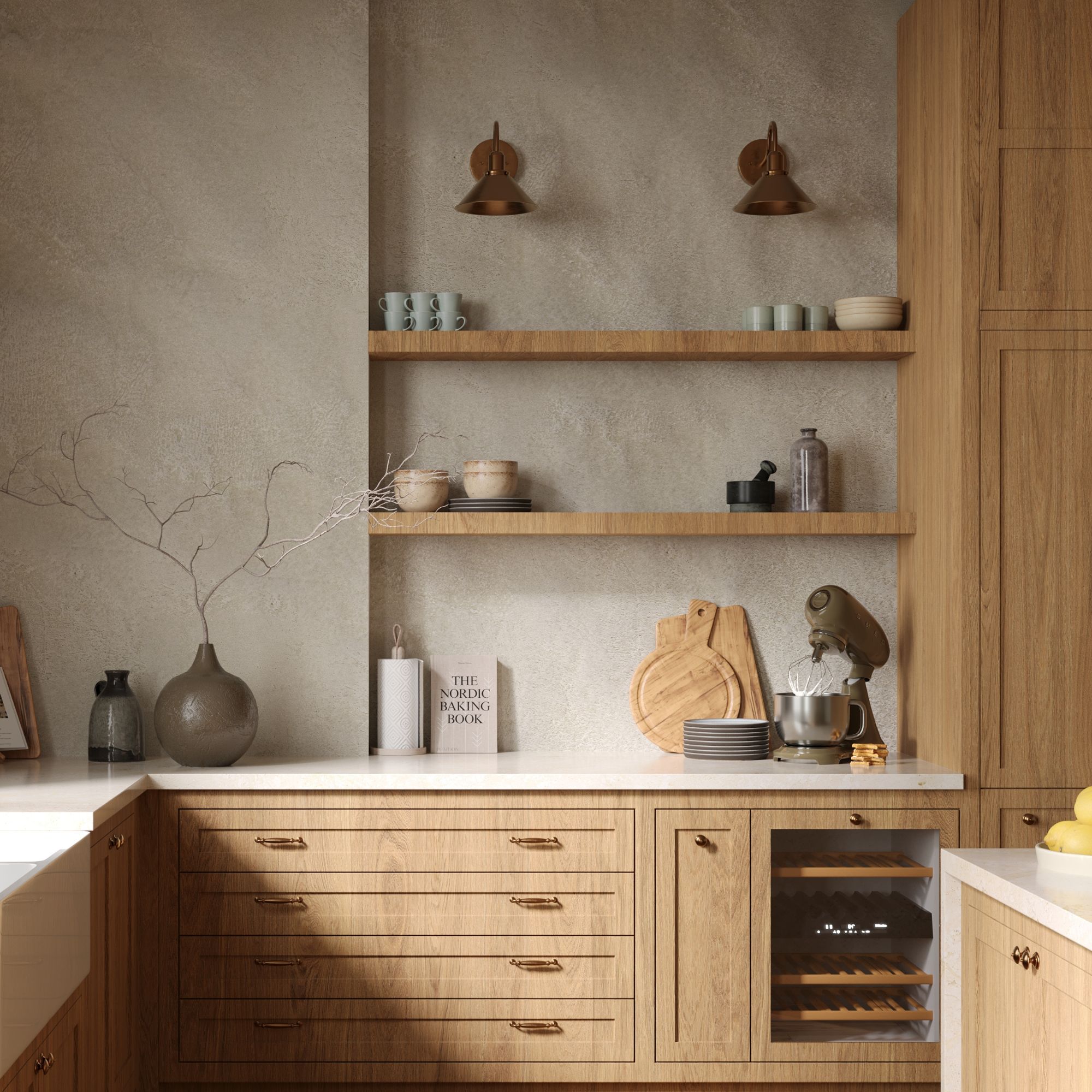 Wood drenching is the calming new twist on the colour drenching trend – here’s how to make the look work in your home
Wood drenching is the calming new twist on the colour drenching trend – here’s how to make the look work in your homeIt’s easier than ever to embrace natural materials
By Maddie Balcombe
-
 Aldi is launching a £200 day bed with four different features - its sleek design is suited to the whole family
Aldi is launching a £200 day bed with four different features - its sleek design is suited to the whole familyYou don't want to miss out on this Specialbuy
By Kezia Reynolds
-
 How to set up a drip watering system that saves water and a lot of effort
How to set up a drip watering system that saves water and a lot of effortKeep your plants hydrated (and your water bill down) with this clever garden watering solution
By Natalie Osborn